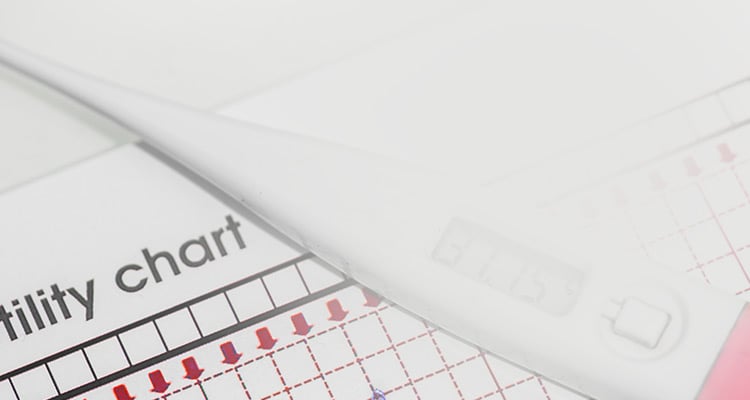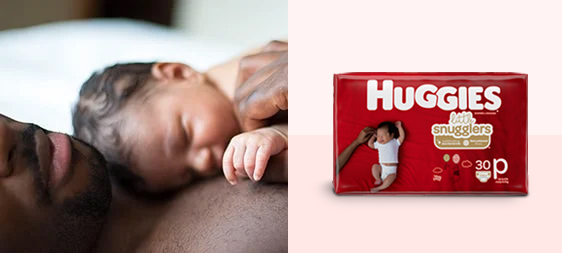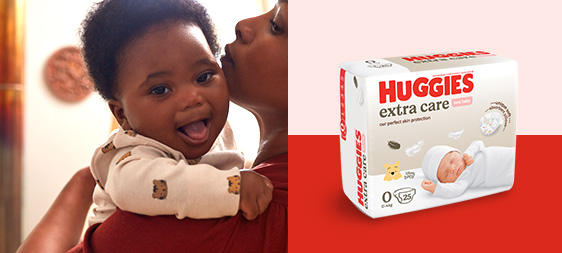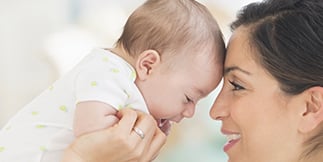Once the fertilised egg or zygote has nestled into the wall of your womb, signals will be sent to your body to produce more oestrogen and progesterone. These and other hormones will help sustain your baby throughout your pregnancy. Some women experience a little bleeding as the embryo implants itself into the womb.
Congratulations, you are now officially pregnant! Being 3 weeks pregnant means that one of your partner’s sperm and one of your eggs have combined and you are in the earliest stages of pregnancy. If, by chance, you have released two eggs and they have both been fertilised, you will be pregnant with non-identical twins. You won’t know it though; all of this activity is going on deep inside one of your fallopian tubes at a tiny, microscopic level.
At 3 weeks pregnant, you are still a few weeks away from starting to feel the effects that pregnancy hormones will have on your body.
Fertilisation
The process of fusion between your egg and a single sperm takes around 24 hours. Only one sperm makes it through to the centre of the egg, although a lot battle it out to be the one and only.
At the very moment when one sperm is successful, the egg builds up a protective wall around itself to stop others from entering. Eventually, the other sperm give up trying. If one egg is fertilised by a single sperm and divides separately, identical twins are formed at this very early stage.
The newly fertilised egg is called a zygote and starts dividing into more and more cells, until around the 3rd day, when 2 original cells have now become 12. The zygote is still in the fallopian tube at this stage and is steadily finding its way down to the womb where it will stay, hopefully for another 37 weeks or so.
Little finger-like projections of hair called cilia line the fallopian tube and wave the zygote along, to discourage it from settling where it shouldn’t. It takes around 60 hours for the fertilised egg to weave its way down to the womb, by which time the zygote has 60 cells, each with a predetermined job and a specialised function.
The zygote divides into two:
– its outer cells will form the placenta and
– the inner cells will develop into your baby
Around a week after the egg has been fertilised in the fallopian tube, it embeds itself in the lining of the womb. By now, there are 100 cells bunched together – this is called a blastocyst.
At this early point, the pregnancy hormone Human Chorionic Gonadotrophin (HCG) is produced, which can be detected in your urine or blood when a pregnancy test is done.
Your physical changes this week
-
It is still too early for you to know that you are pregnant. Although you may be hoping you are and have stopped using contraceptives, it will still be a couple of weeks before you’ll know for certain.
-
Some women are convinced that they are able to tell as soon as they conceive. They report a strange taste in their mouth, an odd feeling, or a sense that something has happened. Being 3 weeks pregnant is still so early that hormonal changes probably aren’t responsible for symptoms at this stage, but we cannot discount what a lot of women swear to be true.
-
Nature is set up to succeed. You don’t need to be extra careful about physical activity or changing your usual routines. If one of your eggs has been fertilised, it already knows where to go and what it has to do.
Your emotional changes this week
-
You may be feeling slightly “on edge” because you want time to go faster so you can tell if you’ve been successful. Sit tight – if you are 3 weeks pregnant, this is an essential stage of your baby’s early development. It cannot be rushed.
Your baby’s changes this week
-
So far your baby is barely the size of a pin head. It is still a cluster of cells and doesn’t look anything like what it will become. But, it is rapidly dividing and multiplying over the full 24 hours of each day.
Hints for the week
-
If you’re going to the dentist for a check-up, let them know you may be pregnant. X-rays in the early stages of pregnancy are not recommended.
-
Be aware of any hazards around you. There are risks with some environmental factors such as pesticides and poisons that can have an affect on early cell division in pregnancy.
-
Try to avoid drinking any alcohol or taking any medication unless it has been especially prescribed for you.
-
Don’t forget to start taking a pre-natal vitamin with a folic acid supplement included.
Now, let’s see what happens in week 4 when implantation of the fertilised egg occurs.
The 40 weeks leading up to the birth of your baby are full of fascinating milestones, physical transformations that will amaze you, and a sense of anticipation that grows as the big day approaches.







 -
-

 -
-


















